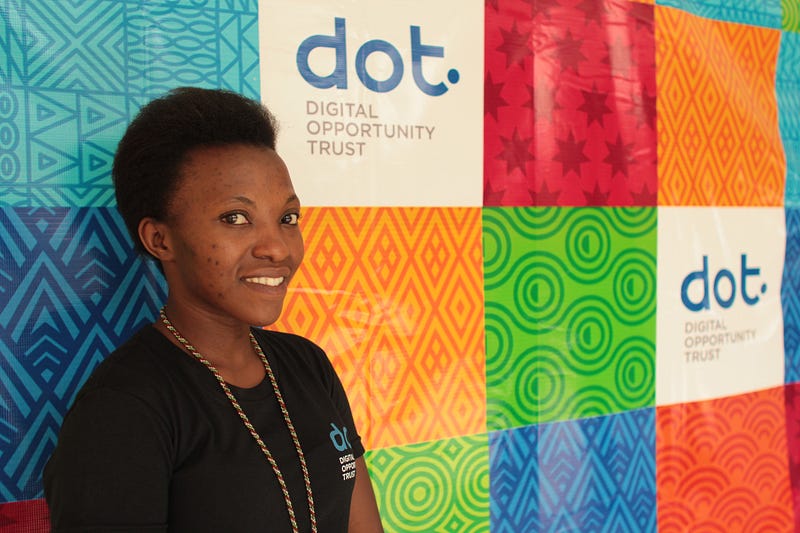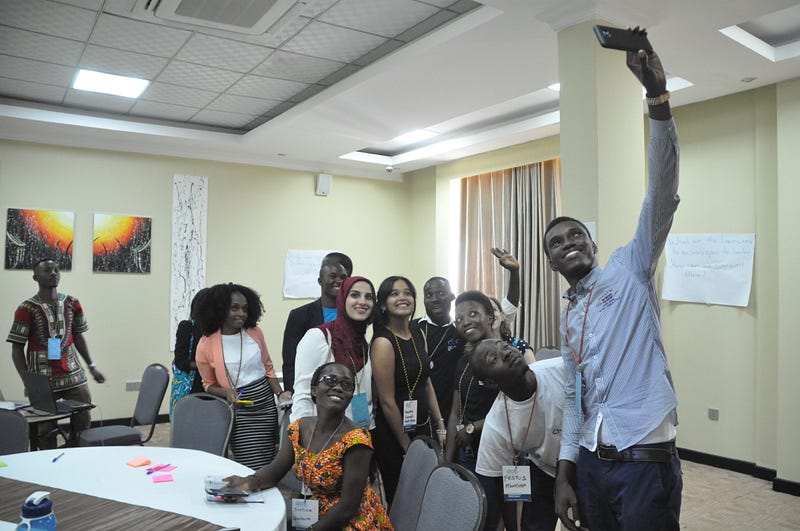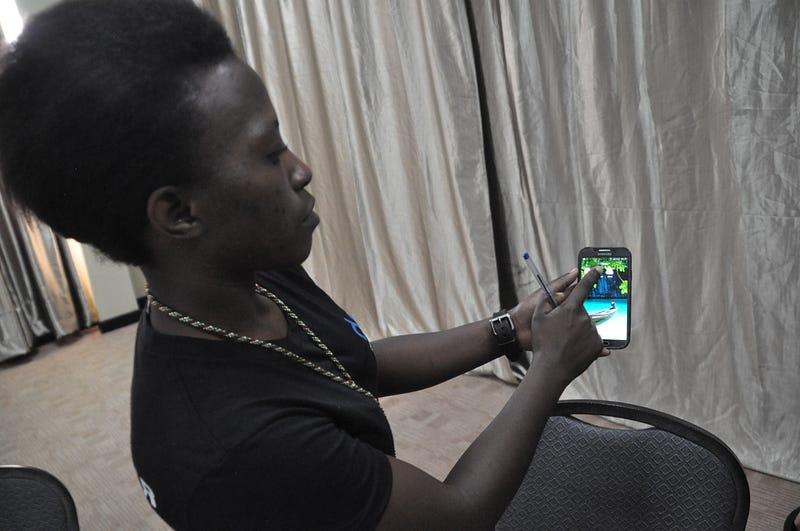Akilah Student Presents Award-Winning App at International Conference

Sandrine Sangwa, an Information Systems student at the Akilah Institute, attended the DOT Youth Unconference
“Good afternoon!” Sandrine Sangwa says enthusiastically to a sleepy, post-lunch crowd of young entrepreneurs and innovators. They are gathered in a small, beige conference room at the Golden Tulip Hotel, in Nyamata, Rwanda. “Good afternoon!” Sandrine says again louder, determined to energize the group. She’s excited — and with good reason.
She’s co-leading a discussion on open technology and innovation — two topics she cares deeply about. “Open technology can help us when we are starting our innovations and when we are advertising or selling our product or service,” she explains to the gathering.
The subject is a pertinent one, particularly for her audience. They’ve been selected from around the world to attend the second DOT Youth Unconference. The conference, organized by the Canadian NGO Digital Opportunity Trust (DOT), brought together nearly 100 social innovators from Africa, the Middle East, and indigenous Canada for a three-day event in May. Participants showcased their innovations, networked with peers, and attended learning and knowledge-sharing sessions.
A Winning Idea
Sandrine’s innovation, Sangwa App, helps visually and speech-impaired people communicate via phone. The idea won her a spot at the conference. After pitching her app at a regional DOT competition and winning third, plus Rfw 300,000 in cash, she presented at DOT’s national conference and was selected from hundreds of participants to attend the DOT Youth Unconference.
Back in the conference room, she confidently shares advice with some of the continent’s top young innovators. “I recommend you [explore] different open technologies,” she tells the crowd. “It can be programming or coding. I am good at coding, so you can approach me instead of using the Internet to find coding information,” she says with a smile. “That is a joke,” she clarifies, chuckling.

Conference participants came from all over Africa, the Middle East, and indigenous Canada.
Sandrine may have been joking, but her coding skills are serious. They won her the respect of the judges at DOT competitions and her peers. She whips out her smartphone and deftly navigates to the prototype of her app, which she coded herself. With the app, “You can turn voice into text and text into voice,” she explains. The app is also designed with a simple user interface, only two large buttons, so that visually impaired people can easily navigate it.
‘My Book Is Full of Business Cards’
For Sandrine, the biggest conference benefit was the opportunity to meet young people who share her passion for social entrepreneurship and innovation. “My book is full of business cards,” she says. “I met with many different people from different sectors so … I’m learning from them. I see what they did and what I did, and then I see how I can improve and what I can change so I can make a strong impact in my community.
At the conference, Sandrine had the opportunity to showcase her app alongside social innovations from other participants. She was particularly inspired by an innovator from Ethiopia who built his own solar panel and a fellow Rwandan who used salt and water to generate electricity.
“In our communities, we face at lot of the same problems and issues, and we learn from each either. You can see that he did something and realize I can do something like that, which can help my community. You may have thought it wasn’t possible before, but now it’s imaginable.”

Sandrine’s app allows visually and speech-impaired people to communicate via phone.
An Innovative Future
Sandrine’s IS instructor at Akilah encouraged her to apply to DOT’s 12-week training program for social innovators. She and four other Akilah students were accepted into the program, which prepares participants to compete in DOT’s regional, national, and international competitions.
Sandrine says Akilah played an important role in helping her build the app. “I learned Java, PHP, and how to build mobile applications at Akilah,” she says. “I combined all of those skills and came up with my application.” The Information Systems faculty at Akilah also provided guidance on implementing the app and building the user interface.
Sandrine sees the DOT Youth Unconference as the starting point for a future career as a social innovator. After she graduates from Akilah in November 2017, she plans to continue developing her coding skills. “I want to build more applications that can help my community and build up the image of women in Rwanda,” she says.
